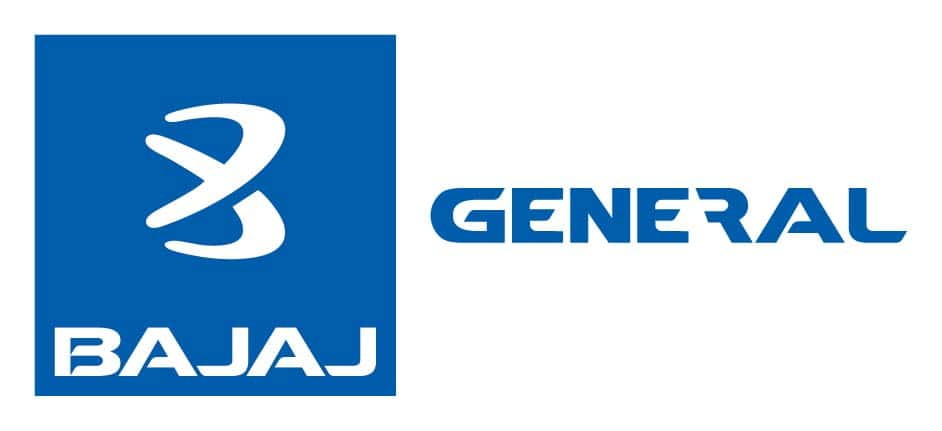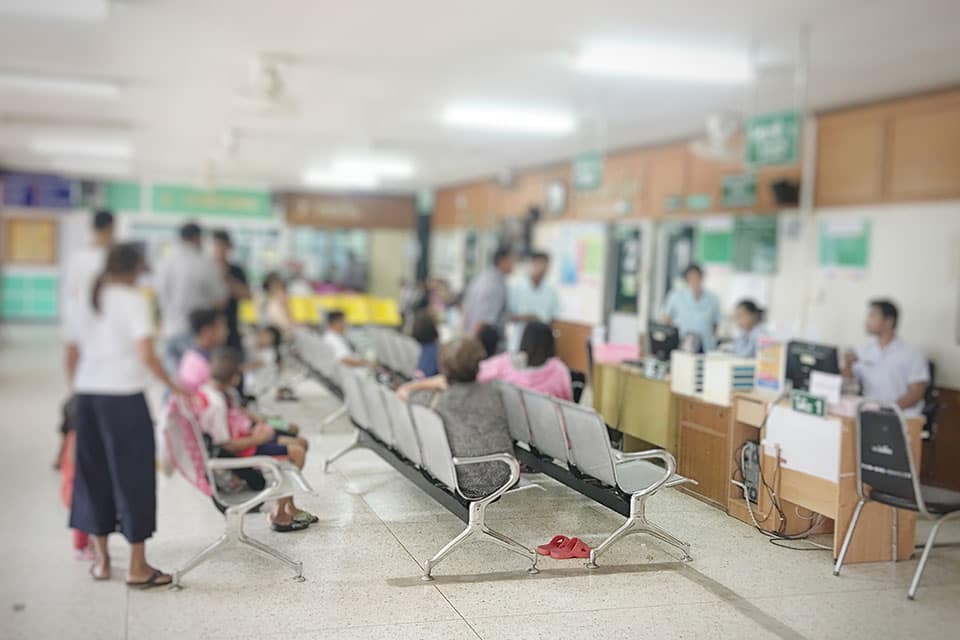How Does Health Insurance Work in India?
Health insurance is designed to provide financial assistance in case you incur a covered medical expense. In return, you are required to pay a premium at regular intervals, which can be monthly, quarterly, half-yearly, or yearly. The medical expenses are covered up to the sum insured limit, which is the maximum claim amount paid by the insurance company.
For instance, suppose you buy medical insurance of ₹5 lakh for a premium of ₹10,000 annually. After a few months, you get hospitalized for an illness and generate a bill of ₹2 lakh. In this case, your insurer will pay for your hospital bill.
However, not all medical expenses are covered under health insurance.
Usually, medical insurance provides coverage for hospitalization expenses, day care procedures, organ donor expenses, ambulance charges, maternity expenses, AYUSH treatments, etc. However, the coverage is not the same for all policies and varies from one policy to another.
Besides, medical insurance plans also come with certain add-on covers that can be purchased with your policy to increase its coverage. For instance, OPD cover, reduction in PED waiting period, critical illness cover, hospital daily cash, etc., are some of the most common health insurance add-on covers.
Moreover, premiums for all medical insurance plans are not the same. Health insurance premiums depend on several factors, such as the age of the insured, medical history, city of residence, sum insured, policy coverage, deductibles, add-on covers, etc.
Types of Health Insurance
Check out the types of health insurance plans in India:
-
Individual Health Insurance
Individual health insurance covers the medical expenses of a single person. It covers the hospitalization and other medical expenses incurred by a single person for up to the sum insured limit. If you want to cover the medical expenses of your entire family, you can buy individual health policies for each family member.
-
Family Health Insurance
Family health insurance covers the medical expenses of the entire family in a single policy. All your family members can share the policy sum insured on a floater basis for a single premium. Hence, family floater health insurance policies are more affordable than buying individual plans for each family member.
-
Senior Citizen Health Insurance
Senior citizen health insurance covers the medical expenses of senior citizens aged 60 years and above. It is designed to cater to the health needs of your elderly parents, especially age-related conditions and pre-existing illnesses. However, buying health insurance for senior citizens is quite expensive and may involve a pre-medical screening.
-
Critical Illness Insurance
Critical illness insurance covers the treatment cost of life-threatening critical diseases, such as cancer, heart attack, stroke, liver failure, etc. It pays a lump sum amount equal to the policy sum insured when you are diagnosed with a listed critical illness, regardless of actual medical expenses. Thus, a critical illness cover allows you to pay your medical bills and compensates for loss of income if diagnosed with a life-threatening disease.
However, critical illness insurance plans have up to 90 days waiting period and up to 30 days survival period.
-
Maternity Insurance
Maternity insurance covers the medical expenses incurred during pregnancy and childbirth, such as delivery expenses, pre and post-natal expenses, etc. It also pays for the treatment and the vaccination of the newborn baby. However, maternity insurance plans have a waiting period ranging from 3 months to 6 years.
-
Top Up Health Insurance
Top up health insurance provides additional financial support to cover your medical expenses in case your base mediclaim policy has been exhausted. It comes with a deductible that needs to be paid before you can file a claim. A top-up insurance policy comes with high sum insured options and is more affordable than buying a new policy with a higher sum insured.
-
Personal Accident Insurance
Personal accident insurance covers any medical complications arising out of an accident. It provides a lump sum payout in case of accidental death or disability. The payout can also be used as a replacement for loss of income or to pay for accidental hospitalization bills.
Benefits of Health Insurance
Here are the key benefits of health insurance:
-
Safeguards Against Medical Inflation
The cost of healthcare facilities is rising sharply in India. You can easily generate a bill of lakhs of rupees if you get hospitalized for a few days. A mediclaim policy helps you manage the rising healthcare costs in India and get the required medical treatment without losing your hard-earned savings.
-
Treatment of Lifestyle Diseases
Lifestyle diseases, such as diabetes, hypertension, obesity, etc., are becoming more prominent in India, especially in metro cities. The treatment for these diseases is not only costly but also continues for a long time. If you have medical insurance, the treatment cost of such diseases will be taken care of by the insurance company, allowing you to focus only on your recovery.
-
Coverage for Pre-existing Diseases
Health insurance plans provide coverage for future medical expenses as well as for the treatment of pre-existing diseases (PED), such as hypertension, asthma, diabetes, etc. These expenses can add up over time. While most plans cover pre-existing diseases after a waiting period of up to 3 years, some plans also offer PED coverage from day 1.
-
Coverage for Critical Illnesses
The incidence of critical illnesses, like cancer, stroke, heart attack, etc., is growing sharply in India, especially among people in their 30s and 40s. Such illnesses demand expensive and long-term treatment that can deplete your savings in no time. With a critical illness insurance policy, you can get a lump sum amount to pay for the treatment and other financial liabilities if diagnosed with a listed critical illness.
-
Access to Quality Healthcare
Considering the rising medical costs in India, it is not easy to afford the best treatment. You may end up going for a more affordable alternative or delaying your treatment. With medical insurance, you can access the best quality treatment without worrying about paying the bills.
-
Cashless Hospitalization
If you have a health insurance policy, you can avail cashless treatment at any hospital of your choice without paying upfront. This eases the financial burden of paying the entire medical bill at once and allows you to get treatment at the best hospital.
-
Tax Savings
Medical insurance also allows you to earn tax benefits. As per Section 80D, your health insurance premiums are eligible for tax deductions for up to ₹25,000 for non-senior citizens and up to ₹50,000 for senior citizens.
Who Can Buy Health Insurance in India?
Anyone above the age of 18 years can purchase a health insurance policy. On the other hand, children can be covered in a mediclaim policy from day 1 to 25 years, depending on the plan.
Why Do You Need Health Insurance?
Health issues can occur at any time, regardless of age or lifestyle. While you can easily handle a minor health issue, a serious ailment or major hospitalization can cause a big blow to your finances. For instance, the average cost of cancer treatment in India ranges from ₹2.5 lakh to ₹20 lakh. The last thing you would want is to be short of funds if your loved ones need urgent medical care.
Health insurance eliminates this uncertainty and covers you & your family for any emergency or planned medical expenses. It not only protects your hard-earned savings but also helps you afford the best treatment without worrying about its costs. It allows you to prioritize recovery over bills and avoid delayed or compromised treatment due to a lack of funds.
How to Choose the Right Health Insurance Plan?
Follow the tips given below to choose the right health insurance plan:
-
Pick the Right Coverage Type
If you want coverage for yourself, buy an individual health insurance policy. But if you want to cover the medical expenses of your entire family, opt for a family health insurance policy.
-
Go for Comprehensive Coverage
Opt for a comprehensive health insurance policy that covers more than just hospitalization expenses, such as day care procedures, pre & post-hospitalization expenses, OPD treatments, cost of consumables, modern treatments, etc. If you are planning a pregnancy, opt for maternity cover. Similarly, if you have a family history of critical illnesses, opt for a critical illness cover.
-
Choose an Adequate Sum Insured
Go for a sum insured amount that adequately covers all medical expenses of you and your family. Make sure to analyze your health needs, medical costs, family history, etc., before finalizing a sum insured. However, do not opt for a very high sum insured as it will increase your premiums.
-
Stick to Your Budget
Buy a health insurance policy that fits within your budget. If you choose an expensive policy, you may not be able to afford the premiums in future. Hence, it is wiser to choose a policy that provides comprehensive coverage at an affordable premium.
-
Go for Lower PED Waiting Period
If you have any pre-existing diseases like diabetes, asthma, hypertension, etc., opt for plans with a lower PED waiting period. Usually, health insurance plans cover pre-existing diseases after a waiting period of up to 3 years, with some plans offering day 1 coverage. The shorter is the waiting period, the sooner you can claim your PED medical expenses.
-
Say No to Co-Payments/Sub-limits
Avoid buying a medical insurance policy with any co-payments or sub-limits. Co-payments refer to the part of the claim amount you have to pay during claim settlement. On the other hand, sub-limits refer to the coverage restriction levied on certain diseases/procedures. To avoid increasing your out-of-pocket expenses, it is better not to opt for a plan with co-payments and sub-limits.
-
Opt for Annual Health Check-ups and Restoration Benefit
While choosing a health policy, make sure to opt for a plan that offers annual health check-ups and restoration benefit. With annual health check-ups, your insurer will pay for the cost of preventive health check-ups every year. On the other hand, restoration benefit recharges your coverage amount before renewal in case the base sum insured has been exhausted.
-
Go for High No Claim Bonus
When choosing a mediclaim policy, you must check the No Claim Bonus (NCB) or cumulative bonus available for every claim-free year. While the NCB reduces your renewal premium, the cumulative bonus provides additional financial support by increasing your coverage amount. The higher is the NCB/cumulative bonus, the higher your health insurance benefits will be.
-
Check the Policy Exclusions
You must check the exclusions of a health insurance policy before finalizing to know the medical treatments and diseases it does not cover. Doing so will help you choose a policy that covers your health needs and the desired treatments you may need in future.
-
Pick an Insurer with a High Claim Settlement Ratio
Before you buy medical insurance, make sure to check the claim settlement ratio (CSR) of the insurer. You should opt for an insurer with a high CSR of 95% or above. A high claim settlement ratio means there is a higher chance of your claim getting approved. Hence, CSR shows the trustworthiness and reliability of the insurer.
Also, check the customer reviews, track record, and network hospital list of the insurer. You must prefer an insurer with positive customer reviews, a good track record of 5+ years and a network of 7000+ empanelled hospitals.
-
Compare Health Insurance Online
Do not forget to compare multiple health insurance plans online based on their coverage, premiums and benefits. Doing so will help you choose the right health plan for you and your family. You can easily compare health policies online on Policybazaar.com and choose the most suitable plan.
How Does Health Insurance Renewal Work?
When you buy medical insurance, you pay a premium amount. However, this premium is valid only for a fixed time period. Usually, health insurance plans are available on an annual, bi-annual, quarterly or monthly premium payment.
Once the validity of a health policy expires, you need to renew it. This is essential because insurance coverage ceases to exist as soon as the policy expires, and you cannot file a claim. So, if you want medical coverage at all times, renewing your health insurance policy before its expiry date is important.
For health insurance renewal, you need to contact your insurance company and request them to renew your policy. Alternatively, you can also renew your mediclaim policy online. Just visit the insurance provider's website, select the policy to be renewed, pay the renewal premium, and the validity of your policy will be extended.
How Does Health Insurance Claim Work?
When you incur a medical expense, you are required to file a health insurance claim to get your insurance company to pay for it. But when your insurer receives the claim, they will first check if the illness/treatment is covered under your medical insurance policy.
Health insurance companies will pay your medical bills only if your illness/treatment is covered by your policy.
If your treatment/illness is covered by your health policy, the insurer will settle your medical bills directly with the hospital in case of cashless hospitalization. You can avail cashless treatment at any hospital of your choice with the cashless everywhere facility. However, you will need to pay the deductibles and expenses not covered by your policy before the insurer pays the remaining bills.
But if your cashless claim is rejected by your insurer, you cannot avail cashless treatment. In such a case, you will have to pay your hospital bill at the time of getting discharged from the hospital. You can then raise a reimbursement claim with your insurance company by submitting the required documents.
Do not forget to collect your medical documents from the hospital at the time of discharge.
When your insurance company receives your reimbursement claim request, they will go through your documents and check if your policy offers coverage for your illness/treatment. If it does, the claims team will initiate reimbursement of your medical expenses.
Should I Buy a Mediclaim Policy or a Critical Illness Insurance Plan?
A mediclaim policy covers hospitalization expenses caused by accidents or illnesses, on a cashless basis or reimburses your actual medical costs up to the sum insured limit. It is designed to handle routine hospital stays and emergency treatments, helping you manage immediate healthcare expenses.
On the other hand, critical illness insurance provides a lump sum payment if you are diagnosed with a listed critical disease, like cancer, heart attack, stroke, etc., regardless of your actual medical bill. It does not require hospitalization and can be used to pay for doctor visits, diagnostic tests, medicines, etc. Moreover, the lump sum payment can also be used as a substitute for your loss of income after the diagnosis of the disease.
For comprehensive protection, buying a mediclaim policy along with a critical illness cover is recommended to get comprehensive coverage during emergency and planned medical treatments.
What is Health Insurance: FAQs
-
Q1. What is health insurance in simple words?
Ans: In simple words, health insurance is a financial tool that covers your medical expenses in exchange for a small premium. If you have a mediclaim policy, your insurer will cover the cost of hospitalization, surgeries, doctor consultations, critical illnesses, diagnostic tests, etc.
-
Q2. What are the benefits of having health insurance?
Ans: Some of the top benefits of having health insurance are that it safeguards against medical inflation, covers lifestyle diseases & pre-existing diseases and makes quality healthcare accessible. It also provides cashless hospitalization facilities along with tax benefits.
-
Q3. How many types of health insurance are there?
Ans: Broadly, there are 7 types of health insurance plans:
- Individual health insurance plan
- Family health insurance plan
- Senior citizen health insurance plan
- Critical illness insurance plan
- Maternity health insurance plan
- Top up health insurance plan
- Personal accident insurance plan
-
Q4. How to claim health insurance?
Ans: You can claim your health insurance policy by raising a cashless or reimbursement claim with your insurer. In case of cashless claims, inform your insurer about your hospitalization, get the hospital to send a pre-authorization request to the insurer, obtain treatment once approved and get discharged. The insurer will settle the bill amount directly with the hospital.
In case of a reimbursement claim, after you inform your insurer about your hospital admission, get treatment and pay all the bills during discharge. Now submit the required documents to the insurance company, and they will pay you the claim amount after verifying the documents.
-
Q5. Which health insurance is best?
Ans: No single health insurance policy is the best for everyone. This is because the health needs of different people are not the same. Hence, you are advised to compare multiple health insurance plans on Policybazaar.com based on their coverage, benefits, premiums, etc., to find the best policy as per your health needs.
-
Q6. What is the best age to get health insurance?
Ans: The best age to get health insurance is in your 20s. At this age, you are young and have a minimal probability of developing a health condition. Hence, your premium will be low, and your waiting periods will be over by the time you file a claim.
-
Q7. What is the cost of health insurance in India?
Ans: The cost of health insurance in India varies for one person to another, depending on their age, sum insured, medical history, city of residence, coverage, etc. For instance, health insurance premium for a 25-year old living in Delhi with no medical history will start from ₹4203, depending on the sum insured, plan type and coverage.
-
Q8. Which company gives the best health insurance?
Ans: No single insurance company offers the best health insurance policy. You can compare health plans from various insurers online on Policybazaar.com to find the best policy for yourself.
-
Q9. What is the best amount for health insurance?
Ans: Buying a minimum health insurance policy of at least ₹15 lakh is the best, considering the rising healthcare costs in India. However, you must analyze your health needs before deciding on the suitable amount for your mediclaim policy.
-
Q10. Who is eligible for health insurance in India?
Ans: Anyone above the age of 18 years is eligible to buy health insurance in India. Moreover, children up to the age of 25 years can be covered under their parent’s health insurance policy, depending on the plan.
-
Q11. At what age is health insurance most expensive?
Ans: Health insurance is most expensive for senior citizens above the age of 60 years. The higher is your age, the higher will be the premium amount.
-
Q12. How to start health insurance?
Ans: You can start a health insurance policy by visiting the official website of the insurer or Policybazaar.com, or contacting their customer care. Once you have selected the plan, fill out the proposal form and pay the premium to get your mediclaim policy.
-
Q13. Can I pay health insurance monthly?
Ans: Yes. You can pay health insurance by paying the premium on monthly instalments.
-
Q14. How much is ₹20 lakh health insurance?
Ans: The cost of ₹20 lakh health insurance starts from ₹7,183 to 29,448. However, the exact premium may depend on your age, coverage, plan type, city and medical history.
-
Q15. Is it mandatory to take health insurance?
Ans: No. It is not mandatory to take health insurance in India.
-
Q16. Which health insurance starts immediately?
Ans: All health insurance plans come with a waiting period of at least 30 days, except for accidental claims. However, plans covering pre-existing diseases from day 1 start immediately.
-
Q17. What is the duration of health insurance?
Ans: Most health insurance plans come with a duration of 1 year. However, some plans come with a duration of 2 years and 3 years as well.
-
Q18. How to pick the best health insurance plan?
Ans: You can choose the best health insurance plan by analyzing your health needs and comparing multiple health insurance plans online to find the most suitable policy.
-
Q19. What is the maximum health insurance will pay?
Ans: Your health insurance policy will pay for up to the sum insured limit.
-
Q20. What documents are required for health insurance?
Ans: You may be required to submit the following documents at the time of buying health insurance:
- Identity proof
- Address proof
- Income proof
- Medical reports
-
Q21. Can we pay EMI for health insurance?
Ans: Yes. Many health insurance plans allow you to pay premiums on EMI.
-
Q22. How many times can I use my health insurance?
Ans: You can use your health insurance policy as long as your sum insured amount is not exhausted.
-
Q23. How many years is health insurance valid for?
Ans: Your health insurance policy is valid as long as you pay the premium.
-
Q24. Is 25 lakh health insurance good?
Ans: A ₹25 lakh health insurance policy is good for a small family with no pre-existing diseases. However, if you have a pre-existing disease and live in a metro city, a health policy of ₹25 lakh may not be sufficient to cover your entire family’s medical costs.
-
Q25. How much does 50 lakh health insurance cost?
Ans: The cost of a ₹50 lakh health insurance policy ranges from ₹691 per month to 2428 per month. However, the exact premium may depend on your age, city, medical history, type of coverage, etc.
-
Q26. What happens if I don’t renew my health insurance on time?
Ans: If you do not renew your health insurance policy on time, it will expire, and you will have no coverage. However, your policy will lapse if you do not renew it within 90 days of the due date, leading to loss no claim bonus benefits.
-
Q27. Can I claim health insurance immediately after buying?
Ans: You can claim your health insurance policy immediately after buying for accidental claims only. This is because most policies have an initial waiting period of 30 days.
-
Q28. Does health insurance cover pre-existing diseases?
Ans: Yes, most health insurance plans cover pre-existing diseases, but after a waiting period of up to 3 years, depending on the policy. However, some plans do offer a zero waiting period for pre-existing diseases.
Health insurance companies
View more insurers
Disclaimer: The list mentioned is according to the alphabetical order of the insurance companies. Policybazaar does not endorse, rate or recommend any particular insurer or insurance product offered by any insurer. For complete list of insurers in India refer to the Insurance Regulatory and Development Authority of India website www.irdai.gov.in














































